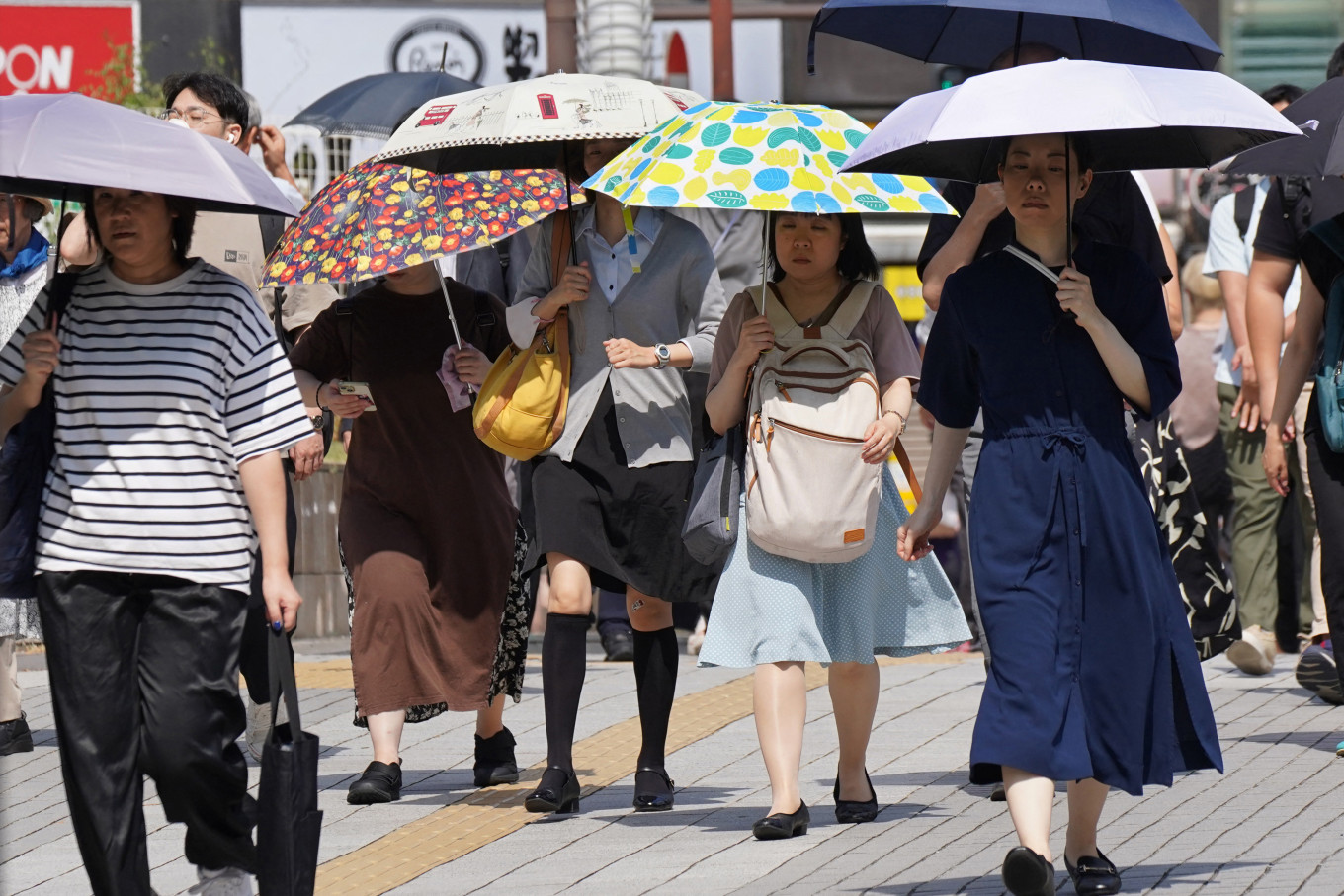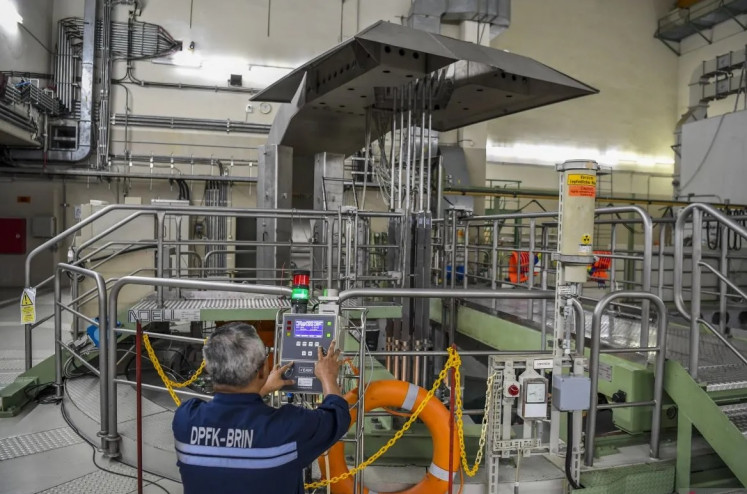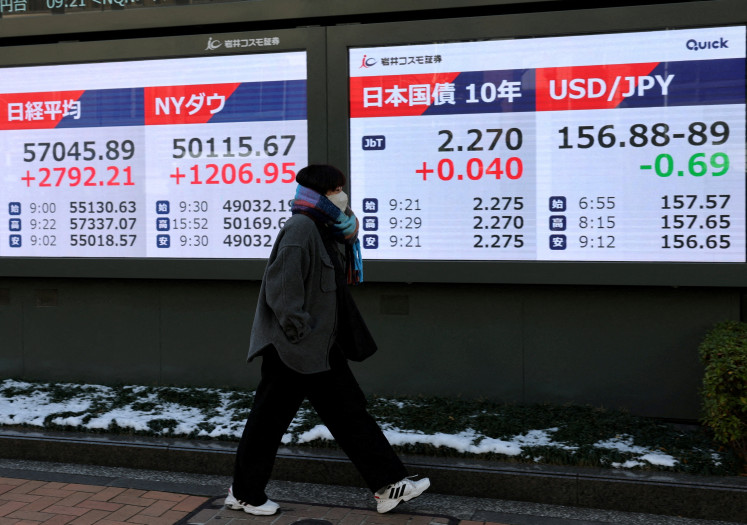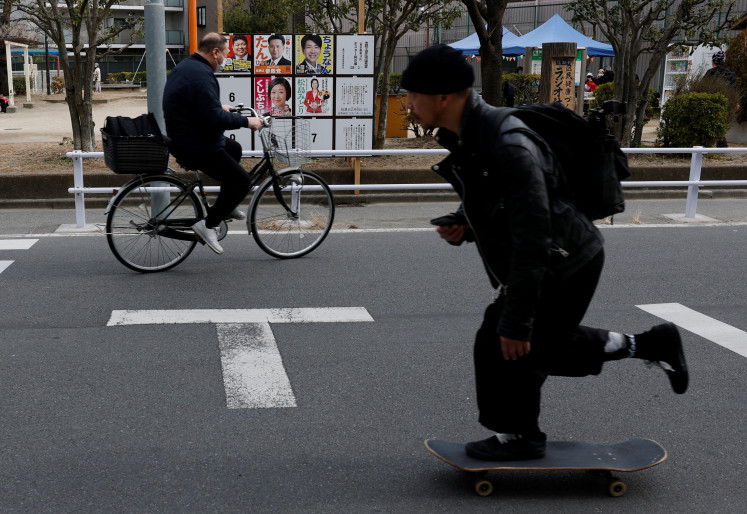Popular Reads
Top Results
Can't find what you're looking for?
View all search resultsPopular Reads
Top Results
Can't find what you're looking for?
View all search resultsJapan's economy contracts for first time in six quarters on tariff hit
Change text size
Gift Premium Articles
to Anyone
J
apan's economy shrank almost 2 percent in the three months through September, as a drop in exports in the face of US tariffs resulted in the first contraction in six quarters, government data showed on Monday.
The reversal may complicate any central bank plan to raise its policy interest rate. However, as it was not as acute as expected, it likely represents a temporary setback rather than the start of a recession, economists said.
"The contraction is largely due to one-time factors such as housing investment" affected by regulatory change, said economist Kazutaka Maeda at Meiji Yasuda Research Institute.
"Exports also reacted," he said. "Overall, the economy lacks strong underlying momentum, but the trend still points to a gradual recovery over the next year or two."
Gross domestic product contracted 1.8 percent over July-September. That compared with revised growth of 2.3 percent in the previous three-month period, as well as the 2.5 percent contraction that economists on average estimated in a Reuters poll.
The reading also translated into a quarterly contraction of 0.4 percent versus the median estimate of 0.6 percent.
Exports constituted the main drag as the impact of higher US tariffs intensified. Automakers saw shipment volume plunge, reversing earlier front-loaded exports ahead of tariff hikes, though they mostly absorbed tariffs by cutting prices.
Net external demand, or exports minus imports, knocked 0.2 of a percentage point off growth, versus a 0.2-point positive contribution in April-June.
The US and Japan formalized an agreement in September that implemented a baseline 15 percent tariff on nearly all Japanese imports, versus an initial 27.5 percent on autos and 25 percent for most other goods.
Housing investment also weighed on growth as tighter energy-efficiency regulation introduced in April slowed commitments.
Private consumption, which accounts for over half of economic output, grew 0.1 percent, matching a market estimate. That was cooler than the 0.4 percent of the second quarter, indicating that high food costs increased reluctance to spend.
Capital spending, another key driver of private demand-led growth, rose 1 percent in the third quarter, far exceeding a market estimate of 0.3 percent.
"Private consumption rose for the sixth straight quarter, and capital expenditure increased for the fourth consecutive quarter," Minoru Kiuchi, the economic revitalization minister, said in a statement.
"This reinforces our view that the economy remains on a moderate recovery path," he said.
Private-sector estimates reflect expectation for growth to rebound in October-December. A poll of 37 economists by the Japan Center for Economic Research projected a 0.6 percent expansion.
The weak GDP data comes as Prime Minister Sanae Takaichi's government compiles a stimulus package to help households manage rising living costs.
Advisers to Takaichi have cited a likely sharp GDP contraction as a reason for aggressive stimulus measures.
Finance Minister Satsuki Katayama told reporters on Sunday that proposed economic stimulus would exceed 17 trillion yen (US$109.94 billion), media reported.
"From late this winter through around spring, there will be measures that improve households' income conditions in real terms," said Nomura Securities economist Uichiro Nozaki. "Therefore, in terms of underpinning consumption in the first half of next year, this is a positive factor."











